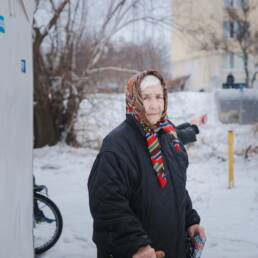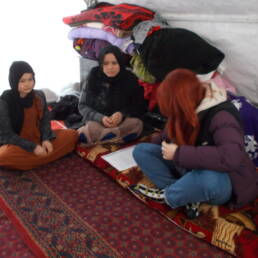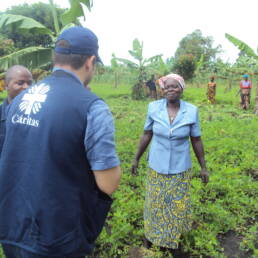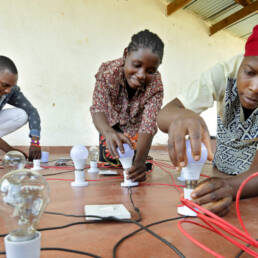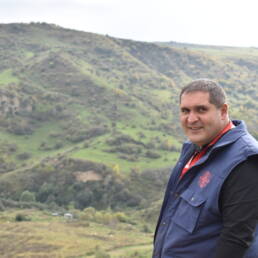Author
Susan Dabbous
Media Officer
Caritas Europa
On 6 June, the devastating destruction of the Kakhovka hydroelectric power dam in southern Ukraine caused immense damage, destroyed homes and farmland and forced the evacuation of over 11,000 people. Caritas Spes provided immediate response from the very first day. Here is the story.
A month after the man-made disaster that destroyed one of the biggest water reservoirs in Ukraine, Caritas Spes continues to help the affected population with supplies of drinking water and much more. The flooding has left the affected areas without necessities such as water supply, sewage and electricity, making living conditions of those who have not left their homes very difficult.
The dam destruction also sparked fears of an environmental disaster due to the extensive presence of chemical plants in the affected areas.
Caritas Spes response
Caritas-Spes Odesa took immediate action on the ground from the first day of the tragedy. Volunteers provided evacuation assistance and aid stations were set up in Kherson, Odesa and Mykolaiv. Local teams entered the flooded areas, providing food kits and basic goods.
Helping flood victims with the big cleanup is undeniably challenging. We are providing at least minimal conditions for sleeping and for making reparations to rebuild the damaged houses. There is a lot of work to do, but this is not the first time we work in these territories. Together we can make a difference.”
Father Piotr Rosochacki, Director of Caritas Spes Odesa
Through the joint efforts of the Caritas confederation and donors, Caritas Spes delivered over 36 tons of food, 56 tons of water and more than 3.2 tons of hygiene products, clothes, bed linen and blankets in the very first weeks after the flooding.

Caritas Spes Ukraine’s humanitarian assistance focuses on both immediate response and long-term support, especially when it comes to housing, education and medical assistance. Access to water and the provision of food kits are currently the most pressing challenges. But the organisation is also preparing to help the local communities to dry their houses in view of the upcoming winter.
In fact, many of the affected residents are determined to return to their homes once the level of the floodwaters has gone down. In the meantime, they are seeking refuge with neighbours or relatives whose houses were not flooded. But even in the not directly damaged areas, access to drinking water remains a constant challenge and the issue of land contamination prevents the locals from planting vegetables for a minimal supply of food.
Generally, the demand for heaters, insulin for people affected by chronic diseases and essential supplies for children, such as fruits, healthy food, clothes, shoes and school items is also significant. But aside from the direct delivery of humanitarian goods, Caritas Spes is also keen to support its beneficiaries with cash assistance programmes, which are considered the best way to empower individuals trying to restore a sense of normality in their lives.
I am impressed by the solidarity of our staff, volunteers and local coordinators working non-stop with the flood-affected communities. Confronting such devastating tragedies can be emotionally draining, yet our staff has a remarkable will to go everywhere they are needed.
Fr. Vyacheslav Grynevych, Executive Director of Caritas-Spes Ukraine





